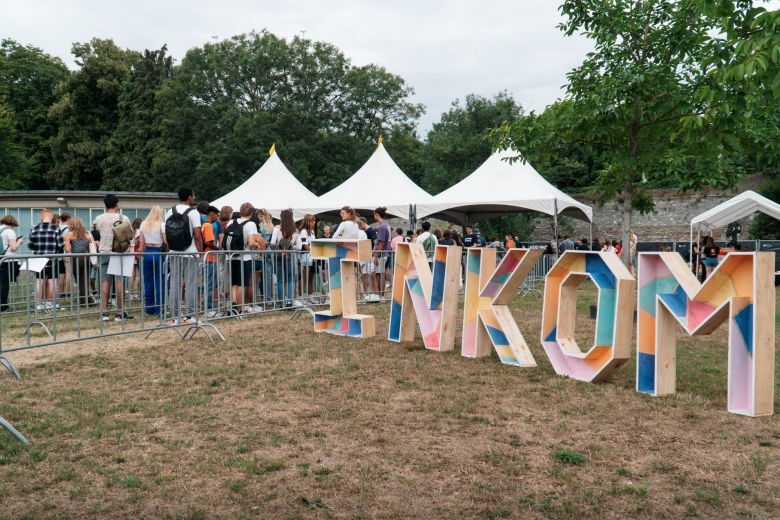Doctor with research skills
In March 2016, now 25-year-old Sophie Joosten completed her master’s programme in Medicine with an exceptional thesis on renal cell carcinoma. During her research, she discovered biomarkers that can help predict the survival of patients with kidney cancer. She received this year's Thesis Prize for her master's thesis.
Sophie Joosten had already begun her research during the first year of her master’s programme. At the end of her first medical internship, which was an elective internship in Medical Oncology, Sophie gave a presentation on a literature review she had conducted. Her presentation was so well received by her supervisors that she was invited to apply for a job as a researcher. “I had to think about it, because it of course had to be combined with my medicine programme.” But in the end Sophie became, in addition to a master's student in Medicine, a part-time doctoral candidate. “Sometimes it was busy, but I had really great supervisors who gave me time for my studies. I could also continue with the doctoral research after graduating from my master’s programme. So that was no problem at all. I never thought ‘I’m going to quit’.”
Poor prognosis
Sophie's master’s thesis is based on the results of her doctoral research, which she was able to spend 100 percent of her time on during her latest medical internship, an 18-week scientific internship. “In most patients, renal cell carcinoma is discovered very late because patients don’t experience any symptoms. By the time they do have symptoms, it’s usually too late. Renal cell carcinoma is often discovered by accident, for example, if someone gets a scan or ultrasound for something different and the doctor sees an abnormality in one of the kidneys. Once the disease has metastasised, or spread, the survival rate is low. This is also true in patients who do not have metastases, or secondary tumours, at the time of their diagnosis. They’re usually treated with surgery, which means that the tumour or the entire kidney is removed. After treatment, the patients are monitored to see whether any metastases have developed. Many patients still develop metastases after a number of years. Currently, we can’t really predict which patients have a high risk of developing ‘later’ metastases. If we knew this in advance, we would prescribe an additional treatment or closer monitoring to ensure that the doctor sees the patient more frequently and with less time in between visits. Then we would be able to treat it better.”
Biomarkers
Sophie works as part of a research group that is associated with the Department of Pathology and the Department of Medical Oncology. “The professors I work with do a lot of research that is focused on epigenetics. Epigenetics looks at genetic alterations in the expression of genes that occur without changes occurring in the sequence of the base pairs of the DNA, as is the case with genetics. We’ve done research on the tissue of patients with renal cell carcinoma and have looked specifically at one epigenetic change, namely DNA methylation. What we found is a panel of four methylated genes, with which we will be able to in the future identify patients who have lower chances of survival. This would allow us from the beginning, from the time they are diagnosed, to implement stricter monitoring of these patients or to start treating them immediately with systemic therapy.”
Sophie’s research still needs to be further developed and validated. “It’s difficult to say when it can be used in clinical practice. A lot is being published about biomarkers, but those findings are often never translated to patient care. That’s really unfortunate, because the purpose of a study is to better help patients. We give a lot of attention to this in our research group. Currently, we’re conducting a study with which we hope to identify biomarkers that can predict whether and how patients will respond to treatments. We’re seeking cooperation with foreign research groups that have more resources and are leading in this area, so we can more quickly develop our findings and share our knowledge.”
A heart for the patient
Sophie now works on her research as a PhD candidate rather than as a doctor in training or doctor at the clinic. “My heart has always been at the clinic. I will be going back to it later. Caring for patients is why I went into studying medicine, but I would eventually like to combine patient care with research, because as a doctor at the clinic you also have to keep up with the latest developments in your field.”
Also read
-
Maastricht Business Days 2024: Building bridges between talent and opportunity.
The Maastricht Business Days (MBD) have been a hallmark of the School of Business and Economics (SBE) since their inception in 1996, standing out as the most prestigious student recruitment event. Organized by SCOPE, the faculty’s dynamic study association, the MBDs connect over 600 students...

-
INKOM 2024
From Monday 19 until Thursday 22 August students will get to know each other and the city of Maastricht. This week is about getting to know Maastricht, the city where you will meet new people and you will have to learn to find your way around again. Not just at the faculty, the library and the spor...

-
Living and working at PITground in Sittard
Living in Sittard and studying in Maastricht, Eindhoven or even Tilburg or Leiden. A few years ago, this was hard to imagine, but nowadays it is increasingly common. Sometimes out of necessity, but often also as a conscious choice. The rise of more creative places to live outside the traditional...